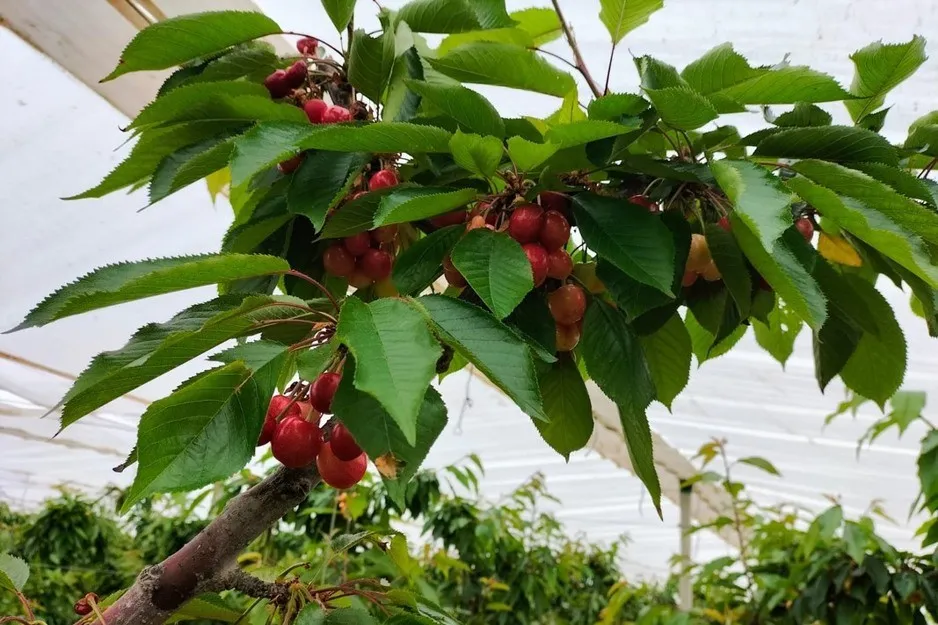Sweet cherry productivity may be compromised in regions with increasingly mild winters due to insufficient dormancy, a condition that typically affects late-flowering genotypes. Conversely, late spring frosts pose a threat to yield in colder regions, particularly for early-flowering cultivars. Consequently, it is important to develop cultivars that are well adapted to the local climate in order to avoid potential fruit losses.
To facilitate marker-assisted molecular selection of genotypes specifically adapted to various climatic conditions, new markers associated with early flowering have been researched. Previous research had carried out a genome-wide association study on 298 sweet cherry genotypes that had been whole-genome sequenced and phenotyped over a nine-year period.
This study identified 163 single nucleotide polymorphisms that were associated with flowering time and were present on all sweet cherry chromosomes. The aim of the investigation conducted at the Institute of Experimental Botany of the Academy of Sciences and the Research and Breeding Institute of Pomology in Holovousy (Czech Republic) was to identify molecular markers that could be relied upon to predict the onset of flowering in sweet cherry trees.
The study used 298 accessions from the gene pool with different flowering times to mitigate the influence of the genetic background of the numerous cultivars used to generate the mapping populations. The ultimate goal was to create an assay that analysed the identified molecular markers in a single reaction and to validate it as a marker-assisted selection tool.
Three markers appropriate for the selection of late-flowering genotypes and one for early-flowering genotypes were chosen and validated using 128 sweet cherry hybrids from various crosses. Genotypes that flowered at least three days later than the reference cultivar ‘Kišinĕvskaja’ (which was the earliest flowering cultivar) were identified using the individual markers for late flowering.
The accumulation of preferred allele combinations for all three late flowering markers has a synergistic effect, suggesting that flowering is delayed by an average of 7.1 days compared to the reference cultivar. The early flowering marker identifies accessions that flower no more than five days later than the reference cultivar with the earliest flowering, ‘Kišinĕvskaja’.
To help breeders predict the onset of flowering of their breeding material and cultivars, all four markers were incorporated into a single assay. A high-resolution genome-wide association study focusing on the onset of flowering in cherry identified 163 variants associated with this trait. The polygenic basis of the trait was confirmed by the localisation of these variants on all sweet cherry chromosomes.
For the selection of hybrids in the breeding programmes, three were selected to develop markers for late flowering onset and one for early flowering onset. The question of the genetic basis of the flowering schedule has not yet been fully resolved. Several genes appear to be linked to flowering time and some of them may be associated with dormancy.
The researchers therefore presented an assay technique that can be implemented in breeding programmes that prioritise the development of late-flowering cherry genotypes in order to mitigate potential frost damage.
Source: Kateřina Holušová, Jana Čmejlová, Ivona Žďárská, Pavol Suran, Radek Čmejla, Jiří Sedlák, Lubor Zelený, Jan Bartoš, New markers for flowering-time selection in sweet cherry, Scientia Horticulturae, Volume 332, 2024, 113226, ISSN 0304-4238, https://doi.org/10.1016/j.scienta.2024.113226.
Image: SL Fruit Service
Melissa Venturi
University of Bologna (IT)
Cherry Times - All rights reserved










